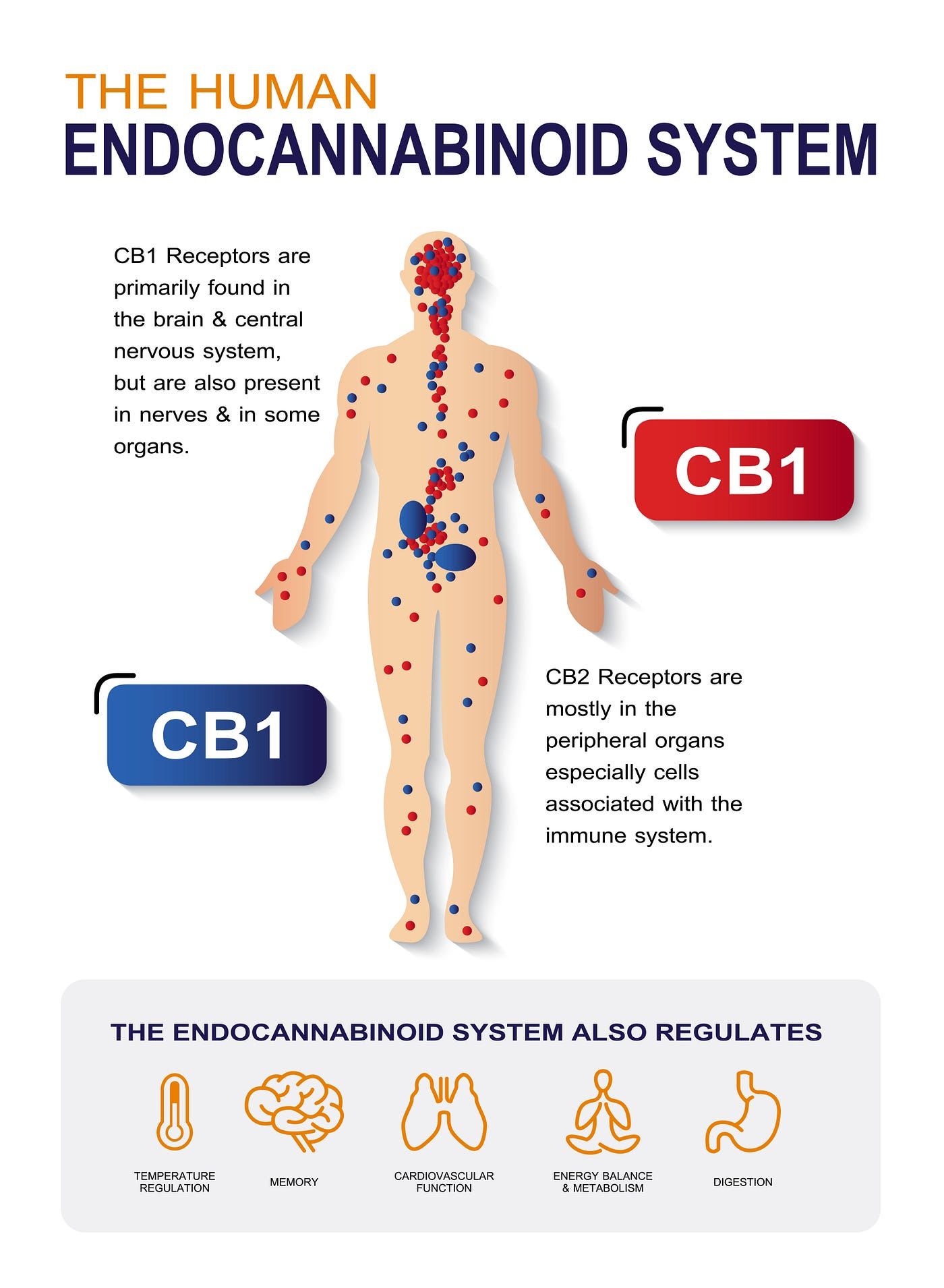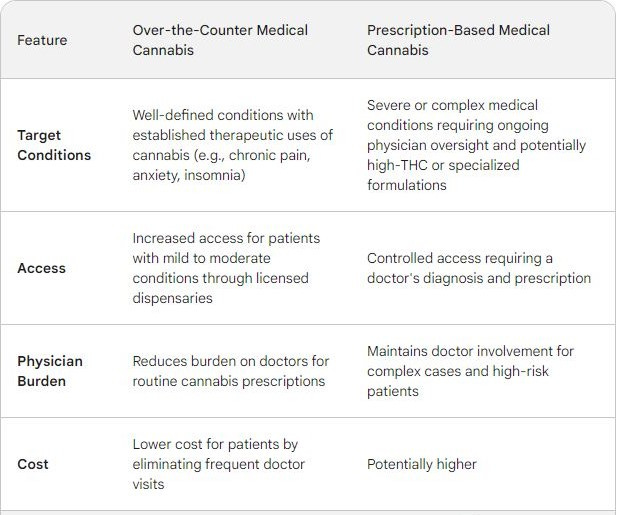A Market-Driven Solution for Thailand's Cannabis Conundrum: Prioritizing Expansive Medical Cannabis with Choice
A Two-Tiered Expansive Medical Cannabis System that Leverages Existing Robust Infrastructure: A Nuanced Approach to the Coming Cannabis and Hemp Act
Thailand stands at a crossroads with the Cannabis and Hemp Act. While a complete ban on recreational cannabis might seem like a straightforward solution, we propose a more nuanced approach – one that leverages the booming unregulated market to cultivate a thriving medical cannabis sector, while empowering patients through a two-tiered system with over-the-counter options.
Medical Cannabis: The Thai Model
This approach, which I call Expansive Medical Cannabis, prioritizes patient well-being and scientific exploration, positioning Thailand as a global leader in responsible cannabis regulation.
The Challenge: So-called Recreational Use Overshadows Medical Use and Guided Patient Access
The concern is real: widespread careless cannabis use has eclipsed the medical market. While a complete ban on recreational cannabis might seem like a straightforward solution, upon reflection, the execution of such a ban makes no sense.
Even if one supposes it can be done, which it can’t, it disregards the ingenuity of the market itself. Upwards of 15,000 existing dispensaries already represent a network of well-established businesses, consumer demand, and market-tested products.
Shutting it all down throws away valuable infrastructure and stifles innovation.
Moreover, a prescription-only model for medical cannabis creates several missed opportunities:
Limited Access Patients with mild to moderate conditions may struggle to access a doctor for a prescription, creating unnecessary barriers to treatment. This can be particularly detrimental in rural areas with limited access to healthcare professionals.
Physician Knowledge Gap Not all doctors are familiar with the therapeutic potential of cannabis, potentially leading to underutilization for qualified patients. Training programs can address this gap, but it takes time for knowledge to spread throughout the medical community.
Increased Costs Repeated doctor visits for prescription renewals can waste time and be a financial burden for patients, especially those with chronic conditions requiring ongoing treatment.
The Smart Alternative: A Market-Driven Transformation that Empowers Patients through Expansive Medical Cannabis
Instead of a ban, consider a strategic pivot with a two-pronged approach:
1. Repurposing Recreational Dispensaries and Prioritizing Medical Cannabis
Issue new licenses and regulations transforming existing recreational dispensaries into medical cannabis providers. This leverages existing infrastructure and fosters a sense of continuity for consumers.
Implement rigorous quality control measures for medical cannabis products, building trust in the medical sector and differentiating it from the recreational market.
Focus on Evidence-Based Practices Encourage research into the therapeutic applications of cannabis, particularly its potential synergy with established Thai Traditional Medicine (TTM) practices. This unique combination positions Thailand as a leader in innovative and holistic healthcare.
Cover the walls of the new dispensary/ clinics with huge info-graphics of Thai Traditional Medicine and introductions to the endocannabinoid system that provides the science behind the ancient medical practice of plant-based therapies.
Dispensaries as Micro-Learning Centers: From Ancient Practice to Modern Science: The Endocannabinoid System and Thai Traditional Medicine
For centuries, Thai Traditional Medicine (TTM) has utilized cannabis for various ailments. However, the scientific basis for these practices remained elusive. The discovery of the endocannabinoid system (ECS) has shed new light on this ancient wisdom.
The ECS is a network of receptors, enzymes, and endocannabinoids (cannabinoid-like molecules produced naturally by the body). This system plays a crucial role in regulating functions like pain perception, mood, appetite, sleep, and memory. Importantly, the chemical compounds found in cannabis, particularly phytocannabinoids like THC and CBD, can interact with the ECS.
This discovery provides a scientific explanation for the potential therapeutic effects of cannabis used in TTM. For example, THC may mimic our natural endocannabinoids, potentially influencing how we experience pain.
Here's the exciting part: TTM practices, honed over generations, might unknowingly interact with the body's ECS. Traditional remedies using cannabis could be influencing our endocannabinoid activity, leading to the observed therapeutic benefits.
Research into this potential synergy between TTM and medical cannabis is a wide-open frontier. By understanding how cannabis interacts with the ECS, we can unlock the scientific basis behind TTM practices and potentially develop new, evidence-based treatments that integrate the wisdom of traditional medicine with modern scientific understanding.
This newfound knowledge positions Thailand at a unique advantage. By embracing research into the synergy between TTM and medical cannabis, Thailand can become a global leader in innovative and holistic healthcare approaches.
2. A Two-Tiered Expansive Medical Cannabis System with a Focus on OTC Access
We propose a two-tiered system, prioritizing over-the-counter (OTC) access for conscious cannabis users, with a prescription-based system as a safety net:
Empowering Patients and Fostering Innovation: The Benefits of Expansive Medical Cannabis
Addressing Concerns
Overuse and Abuse (OTC) Strict age verification, clear dosage guidelines, and limitations on purchase quantities can mitigate potential misuse. Public education campaigns promoting responsible use are also crucial. These campaigns can highlight potential risks of overuse, proper storage methods, and how to identify signs of cannabis use disorder.
Product Quality (OTC) Rigorous quality control measures, independent lab testing, and standardized formulations ensure the safety and consistency of OTC medical cannabis products. This includes testing for potency, contaminants, and harmful additives.
Misinformation Educational campaigns and clear labeling can address misinformation and promote responsible use of OTC medical cannabis. This includes providing information on potential interactions with other medications and highlighting the importance of consulting a healthcare professional for complex medical conditions. Pharmacists can also play a key role in educating patients about potential interactions with other medications and appropriate starting dosages for OTC products.
Why Expansive Medical Cannabis Works
Our Expansive Medical Cannabis proposal prioritizes a market-driven solution that utilizes existing infrastructure, capitalizes on established demand, fosters innovation within the medical cannabis sector, and empowers patients through a two-tiered system. This approach allows Thailand to:
Become a Global Leader in Responsible Cannabis Regulation By striking a balance between accessibility and safety, Thailand can establish itself as a model for other countries considering cannabis legalization.
Cultivate a Flourishing Medical Cannabis Sector Repurposed recreational dispensaries become hubs for high-quality medical cannabis, attracting patients seeking evidence-based treatment options. This fosters competition and innovation within the medical cannabis industry, leading to a wider variety of safe and effective products for patients.
Emerge as a Medical Tourism Destination The unique combination of Thai Traditional Medicine (TTM) and medical cannabis positions Thailand as a magnet for medical tourists seeking alternative treatment approaches. This can significantly boost the tourism industry and generate new revenue streams for the Thai economy, attracting international patients seeking a holistic approach to healthcare.
Summing up
Expansive Medical Cannabis prioritizes patient well-being, empowerment, and innovation. It fosters a future for cannabis in Thailand that embraces:
Holistic Healthcare By integrating cannabis with established TTM practices, Thailand can offer patients a truly comprehensive approach to medical cannabis treatment, addressing both physical and emotional well-being.
Patient Choice The two-tiered system empowers patients with control over their treatment journey, allowing them to access appropriate medical cannabis options based on their needs.
Research and Development This framework encourages continued research into the therapeutic applications of cannabis, leading to the development of new and effective treatment options for a wider range of medical conditions.
Economic Growth Leveraging existing infrastructure and a robust medical tourism sector can create a thriving cannabis economy that benefits both patients and the Thai economy.
A two-tiered Expansive Medical Cannabis system, with a robust OTC framework alongside a strong prescription model for complex cases, offers the ideal balance between accessibility, safety, respect for patient autonomy, and the integration of holistic healthcare practices.
I urge the Thai Government to embrace this market-driven Expansive Medical Cannabis approach. By prioritizing medical cannabis, leveraging existing infrastructure, and empowering patients through a two-tiered system with a focus on OTC access, Thailand can become a global leader in responsible cannabis regulation and a beacon of innovation in medical cannabis treatment, integrated with its established tradition of Thai Traditional Medicine.
Together, we can unlock the potential of cannabis for the benefit of patients, the economy, and Thailand's reputation as a leader in holistic healthcare innovation.






